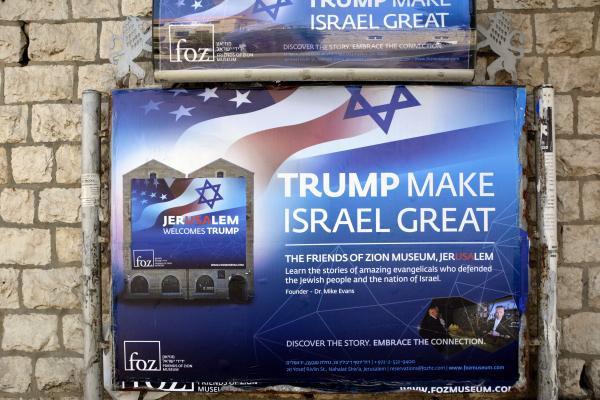Dec 19, 2019
Trump’s latest executive order is yet another chapter in the spiritual story created by evangelicals.
Read the Full Article

Already a subscriber? Login

Trump’s latest executive order is yet another chapter in the spiritual story created by evangelicals.
